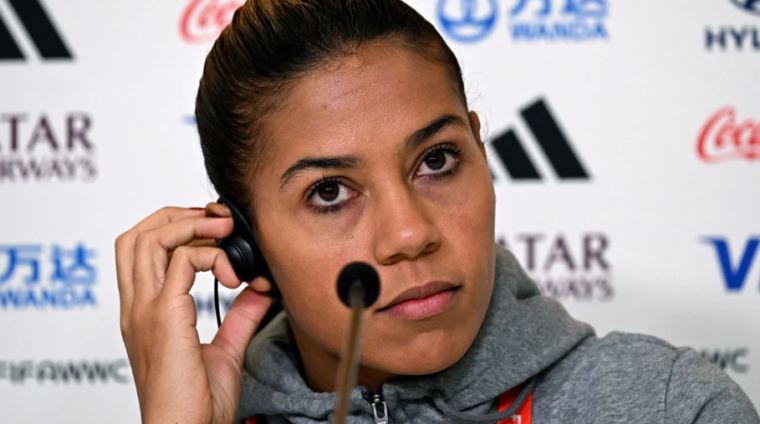The BBC has apologised for an “inappropriate” question one of its reporters asked the captain of the Morocco women’s national team.
At a media conference ahead of Morocco’s Women’s World Cup opener against Germany, a reporter from the British news organization’s World Service asked Ghizlane Chebbak: “In Morocco, it’s illegal to have a gay relationship. Do you have any gay players in your squad and what’s life like for them in Morocco?”
The press conference moderator interjected, saying: “Sorry, this is a very political question, so we’ll just stick to questions relating to football.”
“No, it’s not political,” the journalist replied. “It’s about people, it’s got nothing to do with politics. Please let her answer the question.”
A BBC spokesperson told CNN: “We recognise that the question was inappropriate. We had no intention to cause any harm or distress.”
There was then one more question before the press conference was ended.
According to Human Rights Watch, “Moroccan law also criminalizes what it refers to as acts of ‘sexual deviancy’ between members of the same sex. Article 489 of the penal code punishes same-sex relations with prison terms of up to three years and fines of up to 1,000 dirhams ($91).”

The Athletic’s Steph Yang, who was in the room, said that “some members of the Moroccan media were audibly dismayed by the question.”
Shireen Ahmed, a reporter for CBC Sports who was also in the room, wrote that the reporter was “completely out of line.”
“Harm reduction matters and posing the question to the captain or coach was unnecessary,” she added.
“Asking a player about her teammates and whether they are gay and how it affects them when you know it is not permissible is bizarre and out of line. The captain cannot out players nor comment on policy bc [because] it could be dangerous for them, too,” Ahmed wrote.
“If reporting harms someone, it is not only unethical but dangerous.”
CNN has learned that a FIFA representative addressed the BBC journalist on site immediately after the press conference had ended.
The Moroccan Football Federation did not immediately respond to CNN’s request for comment.
Morocco began its 2023 Women’s World Cup campaign with a heavy 6-0 defeat by Germany on Monday.
World soccer governing body FIFA is allowing a variety of different armbands that highlight “a range of social causes” to be worn at the Women’s World Cup in Australia and New Zealand.
During the tournament, team captains are each allowed to wear an armband chosen from eight different social causes, including gender equality, inclusion and peace.
There is no explicit mention of LGBTQ rights in Women’s World Cup armbands, beyond the themes of “gender equality” and “inclusion.”
Latest Stories
-
Kenya FA suspends national team goalkeeper Patrick Matasi over match fixing video
14 minutes -
Banks average lending rates remain around 30% – BoG
37 minutes -
Ghana’s oil Industry to see boost as Chevron and Kosmos Energy pledge increased investments – Energy Minister
1 hour -
NPA donates relief items to victims of Ketu South tidal waves
1 hour -
MRI test is like a lottery – Black Starlets Coach
1 hour -
‘Red Means Stop’ campaign launched to combat substance abuse
1 hour -
Ghanaian entrepreneur sues Kevin Taylor for GH¢20m over defamation
1 hour -
Cedi depreciates 5.3% to dollar in quarter one 2025 – BoG
1 hour -
National Service Authority D-G pledges to make agriculture attractive to the youth
1 hour -
Lithium exploration communities demand bottom-up compensation negotiations
1 hour -
New Chief of Defence Staff assumes duty
1 hour -
Restructure property tax system for efficient collection – Abeiku Gyan-Quansah to gov’t
1 hour -
Reopening date for single-track SHSs rescheduled by GES
1 hour -
Ghana’s total public debt falls to GH¢726.7bn in December 2024; fiscal deficit-to-GDP estimated at 5.2%
2 hours -
‘Otto Addo’s comments on Andre Ayew shocking and disappointing’ – Fiifi Tackie
2 hours

